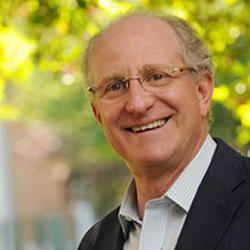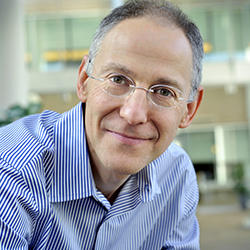In This Story

A first-ever course taught by political insiders arrives during the spring 2022 semester that will help students understand how politics is accomplished in the nation’s capital. And it takes place on Capitol Hill.
GOVT 467: Issues in Economic Policy—also known as “How Washington Really Works”—features Pulitzer Prize-winning Washington Post columnist and Mason Robinson Professor of Public Affairs Steven Pearlstein and Zeke Emmanuel, former health care advisor for President Obama and now the vice provost for global initiatives and chair of the Department of Medical Ethics and Health Policy at the University of Pennsylvania.
Emmanuel, Pearlstein said, “thought it would be fun to teach a course about how Washington really works and he suggested we do it together. I said, that's a great idea but there's a little problem: Your school is in Pennsylvania and my school is in Virginia.”
As it happens, Penn operates the Penn Biden Center for Diplomacy and Global Engagement on Constitution Avenue, just blocks from the Capitol. The idea, Pearlstein said, was that “we could teach the course in Washington and we could have the students from Penn come south and the ones from [Mason] come north.”

The Friday classes will feature special speakers who will elaborate on insights of eight case studies the course will explore. Cases range from the 1957 Civil Rights Act to welfare reform to Obamacare. According to the course description, “policy debates, political dealing, and the motivations and ambitions of politicians and policy makers will be examined, along with the roles of interest groups, think-tanks, and the media.” (Lunch and Metro fare will be provided to each student.)
In the final weeks, students working in groups of politically like-minded colleagues, will be tasked with creating comprehensive and politically-realistic policy proposals related to immigration, poverty, and taxes.
“Our aim is for [students] to not be cynical about how policy is made but to be realistic,” Pearlstein said of the goal of the course.
Ultimately, students will understand how public policy is achieved when stakeholders have competing interests.
